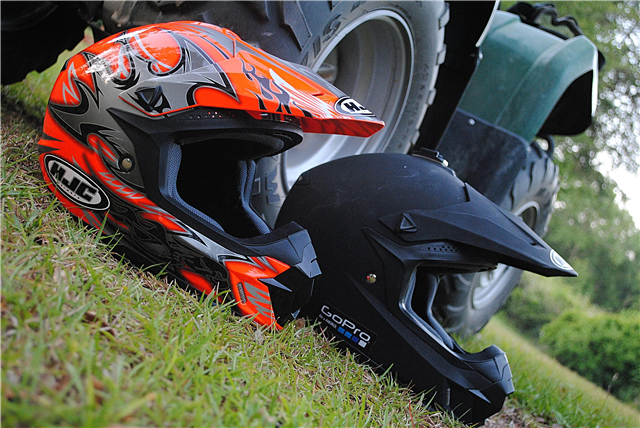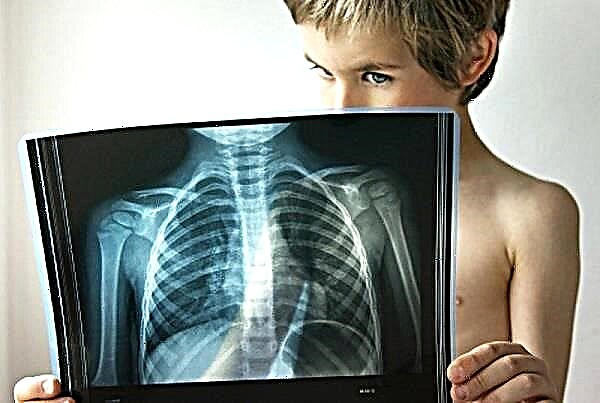If the child vomited at night without fever and diarrhea, then, most likely, the reason is in nutrition. There may be several prerequisites for such a state. In babies under one year old, the digestive system is not fully formed. The condition can be provoked by the onset of the development of a disease or poor-quality products. You need to know what to do in such a situation and how to alleviate the condition of the crumbs.

Girl vomits
Nausea and vomiting what is
Vomiting and nausea are usually symptoms of an illness. They manifest themselves in the form of a protective reaction of the body to an irritant. A stagnant process occurs in the stomach, vomit tends to outward. After an attack of vomiting, the baby becomes easier.
What the child feels at this time:
- dizziness;
- spasm of the stomach and diaphragm;
- cold sweat;
- loss of appetite;
- the baby turns pale;
- exhibits apathetic behavior.
Nausea is the urge to gag. The sensitivity to odors increases. Any action can provoke an attack of vomiting. Food that has entered the stomach is not completely digested. Its remains accumulate inside, the secretion of gastric and bile juice increases. Then vomit erupts. Vomiting at night in a child without fever is characteristic of this condition.
Important! After an attack of vomiting, the child should be washed and put on its side. In a straight position, lying on its back, the baby may choke.
Possible causes of nighttime vomiting without fever
If a child vomits at night, then the reasons for this are different: external, congenital and due to the disease.

The baby is crying
External causes
The child is nauseous at night under the influence of environmental factors. These reasons include:
- Overfeeding. If the baby ate too much, then the excess amount of food will come out. The crumb will not be able to digest a large amount of food.
- Psychogenic cause. Some children react with vomiting to stressful situations. In children under one year old, such a condition can be provoked by a sudden change of scenery, divorce of parents, a trip to the doctor.
- Ingestion of a foreign body. It is known that small children pull everything into their mouths. Accidentally, a child can swallow a small part, then frequent bouts of vomiting occur. Typically, the temperature does not rise.
Regurgitation for babies is considered normal. 90% of babies spit up excess breast milk. The amount of mass should not exceed a volume of more than 2 tablespoons. spoons. It is easy to tell the difference between vomiting and normal. To do this, pour water in the amount of 2 tbsp on a towel. and compare the spots. If there is more regurgitation, then it is vomiting.
Important! Regurgitation takes place on its own with the introduction of complementary foods.
Vomiting due to infant illness
Diseases that make a child sick at night are common among infants. These include:
- Food poisoning. Occurs due to improper nutrition of the child, the use of stale products. The attack is one-time, after vomiting the baby becomes easier.
- Pylorospasm. A valve spasm occurs between the stomach and intestines. This makes it difficult to push the food. The condition requires treatment.
- Cardiospasm. Food enters the esophagus, after which it expands sharply. Vomiting attacks occur immediately after eating or after a short amount of time. If feeding at night, then the baby can vomit in a dream.
- Acetonic crisis. Due to improper and fatty nutrition in the body of the crumbs, acetone begins to be produced. It provokes vomiting, but without fever and diarrhea. There is a smell of acetone from the mouth.
- Neurological disorders. If the baby fell the day before and hit his head, then a head injury provokes this condition.
- Intestinal infection. Most often, vomiting is accompanied by diarrhea and fever, but not in all cases. Sometimes the child just vomits many times in a row.
- Inflammation of the digestive system. As a rule, they arise from eating too fatty foods. A large amount of bile is released.
- Bowel obstruction. In this case, surgical intervention is required. It happens when a foreign body is swallowed.
Important! If you suspect a pathology, you should consult a doctor. Only a specialist will be able to correctly assess the condition and prescribe treatment.

The girl has a stomach ache
Congenital pathologies
Sometimes the child is drowned at night due to congenital reasons. Premature babies are most often affected. Meet:
- Neurological abnormalities, for example, hydrocephalus of varying degrees. When a baby is sick, excess cerebrospinal fluid compresses his brain. This induces vomiting.
- Pyloric stenosis. Profuse and frequent vomiting after a meal is associated with a blockage of the valve between the stomach and intestines. Food does not enter the stomach at the correct size.
- Underdevelopment of the digestive system. Includes pathologies with all parts of the intestine.
- Disruption of metabolic processes. In young children, this is a congenital condition. It manifests itself in different ways, requires treatment.
As a rule, congenital causes are diagnosed in the first 1-3 months of a child's life. Some pathologies are treated only with surgery. With a congenital illness in a child at night, vomiting without fever is considered normal.
What parents need to remember
Vomiting at night in a child is of particular concern to parents. You will have to undergo examination and treatment with a doctor. To make it easier for him to diagnose, there are a few things to remember.

The boy is interviewed by the doctor
What the child ate and drank the day before
If the baby is on formula feeding, it is important to know the manufacturer, batch and expiration date of the product. This will aid in diagnosis and treatment.
When the baby grows up and switches to adult nutrition, parents should carefully monitor him. The child will vomit at night if he eats too fatty or stale food. The most common foods that induce vomiting are:
- fatty and fried;
- a lot of sweets;
- dairy;
- smoked sausages;
- stale oil.
Important! For baby food, it is recommended to prepare food daily, carefully check expiration dates and storage quality.
The beginning of an attack of vomiting, its nature
It is imperative to note the time of the first attack, the frequency, if there are several. If the poisoning is food, then vomiting will begin after a couple of hours. If there is a head injury, it can vomit within 24 hours. The nature of the vomit also plays an important role. Memorize color, quantity, possible impurities. They will help you make the right diagnosis.

The boy is bad
The presence of accompanying symptoms
If vomiting happened once, and no other symptoms were detected, the child immediately felt better, then most likely he overeat. In the morning he will wake up as if nothing had happened. More serious conditions are accompanied by:
- stomach pain;
- pallor;
- an increase in temperature;
- dehydration;
- repeated attacks;
- chills;
- diarrhea;
- insomnia;
- anxiety.
It is important to write down all symptoms to speed up the initiation of treatment.
Vomit consistency
When the child vomits at night, then you need to study the consistency of the vomit. She points to a specific reason. It happens:
- dense;
- semi-liquid;
- watery.
Density indicates the stage of the disease. More dense vomiting indicates the onset of the condition.
When to call an ambulance
If the child vomits at night and there is no fever, the parents suspect a serious illness. It is worth calling an ambulance. Criteria for calling an ambulance:
- repeated incessant vomiting;
- the presence of bile and blood impurities in the vomit;
- vomit became thick and black;
- subfebrile temperature;
- yellowing of the skin;
- severe abdominal pain.
Important! Better to play it safe and call an ambulance than to walk in thought and excitement.

Girl with a bear in bed
How to relieve a child's condition before the doctor comes
Before the doctor arrives, you need to try to alleviate the baby's condition. For this:
- Lay the child on its side in the evening before bedtime. Make sure it does not turn straight.
- Give plenty of water to drink to compensate for dehydration.
- Wipe your forehead with a cool, wet towel to relieve chills.
- Babies up to a year can be given half a packet of smecta.
- You can not abruptly pull out the bottle from the baby.
- If the crumb has stained clothes, then it must be changed.
- Parents are required to monitor the amount, consistency and frequency of vomiting.
As soon as the child begins to feel worse, do not hesitate. They immediately call a doctor or an ambulance, it will not be superfluous to play it safe.
What not to do if your baby is vomiting
If a child vomits all night, then you should not give him unfamiliar drugs, force him to eat and drink sugary drinks. You need to follow all the recommendations and wait for the doctor. Spontaneous treatment can lead to serious consequences.
Why does the child sometimes vomit at night? The reasons are different, sometimes they are harmless, you should not panic if the baby vomited at night. Parents should follow the recommendations, call a doctor and wait for his opinion. The kid will quickly recover if you provide him with timely assistance.



